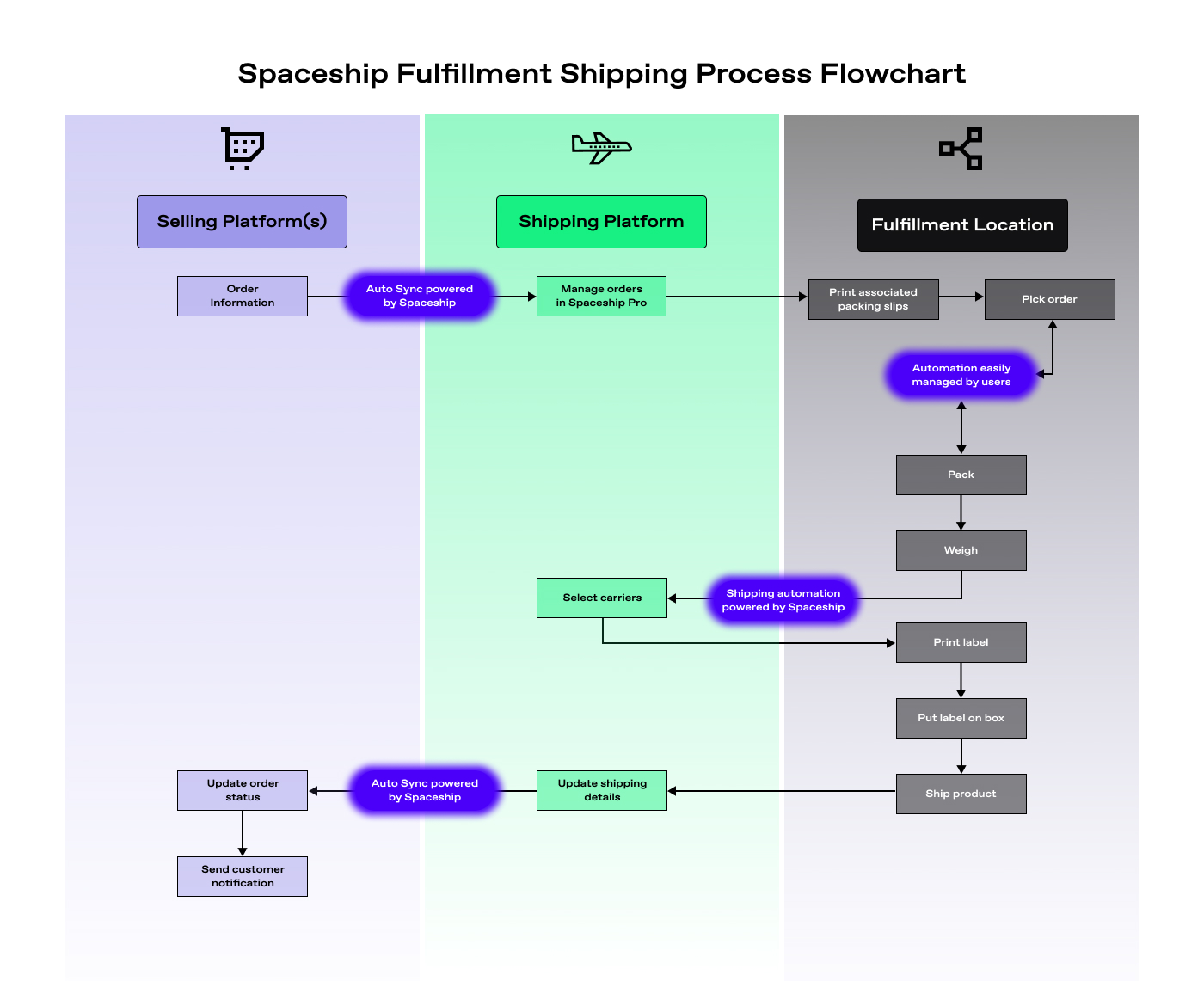
In the dynamic landscape of modern business, staying ahead demands innovation and strategic resource allocation. Third-party logistics (3PL) emerges as a game-changing solution, transforming supply chain management for companies of all sizes. Let’s delve into the world of 3PL logistics, understanding its benefits, suitability for different businesses, and its crucial role in international shipping and customs clearance.
What is 3PL?
At its core, 3PL logistics revolves around outsourcing logistic processes to third-party experts. This encompasses an array of functions, including warehousing, inventory management, order processing, shipping, and receiving. But it doesn’t stop there; 3PL providers extend their offerings with value-added services like customer support, returns processing, and customization.
But there’s no one-size-fits-all approach in the world of 3PL providers. The spectrum ranges from standard 3PL providers handling fundamental functions like warehousing and distribution, to service developers, customer adapters, and customer developers, each catering to specific business needs.
The Benefits of Using 3PL Services
Embracing a 3PL provider brings a plethora of advantages, no matter the business scale. Let’s explore these benefits through a list:
- Shipping Cost Savings: Through industry expertise and carrier relationships, 3PL providers secure lower shipping rates.
- Reduced Operating Expenses: By outsourcing, costs related to warehousing, inventory management, and order processing are significantly slashed.
- International Logistics Excellence: Navigating global regulations and customs is a breeze for 3PL providers, enabling businesses to expand their global footprint.
- Mitigating Risks: From insurance to contingency planning, 3PL providers safeguard businesses against potential disruptions.
- Focus on Growth Levers: Outsourcing logistics liberates resources for businesses to concentrate on core competencies and growth strategies.
- Market Expansion: Value-added services like customer support and customization enhance customer satisfaction, fostering market growth.
Spaceship Fulfillment offers advanced techonology to let e-commerce owners control over the fulfillment process online. Just a few clicks needed to book the inventory and change the product packing rules instantly, plus comparing internal carriers online to find out the best-fitting shipping solutions.

Connect with Spaceship Fulfillment.
Get 30 days free storage when you sign up now.
What Type of Businesses Use 3PL Services?
3PL logistics isn’t confined to a single sector; its benefits span across industries. Here’s how different businesses harness its potential:
- eCommerce Businesses: Online retailers thrive by outsourcing warehousing, order fulfillment, and shipping processes to 3PL providers, allowing focus on marketing and customer acquisition.
- Retailers: Brick-and-mortar stores optimize inventory and distribution with 3PL services, boosting their supply chain efficiency.
- Manufacturers: Manufacturers elevate their supply chain game by entrusting 3PL providers with logistics, ensuring cost savings and efficient order fulfillment.
- Wholesalers and Distributors: Streamlining inventory management and order processing, 3PL services aid wholesalers and distributors in boosting customer satisfaction.
- Startups and Small Businesses: 3PL providers offer startups and small businesses the infrastructure and expertise to handle logistics without hefty initial investments.
- Fluctuating Demand Businesses: Scaling up or down based on demand is seamless with 3PL services, offering flexibility without the burden of additional resources.
How can 3PL Providers Help with International Shipping
For businesses expanding their horizons globally, 3PL providers offer a treasure trove of international shipping assistance. Here’s how they make it happen:
- International Shipping Expertise: With mastery over international regulations and customs, 3PL providers steer clear of costly blunders.
- Smart Carrier Selection: Relying on 3PL wisdom, businesses choose optimal carriers based on factors like cost, reliability, and transit time.
- Simplified Customs Clearance: From paperwork to duty payments, 3PL providers handle the nitty-gritty of customs clearance seamlessly.
- Global Warehousing and Inventory: 3PL extends its reach to warehousing and inventory management worldwide, ensuring cost-effective shipping and swift deliveries.
- Multilingual Support: Communicating with customers worldwide is made easy with 3PL providers offering multilingual customer support.
- Risk Management: Offering insurance and contingency plans, 3PL providers shield businesses from hiccups in international shipping.
Learn more: E-Commerce Warehousing and Fulfillment Centers in Hong Kong: A Comprehensive Guide 2023
The 3PL Provider’s Edge in Customs Clearance
Customs clearance for international shipments can be a labyrinth of complexities. Enter 3PL providers, the navigators:
- Customs Requirements Maestros: Armed with knowledge, 3PL providers effortlessly maneuver customs regulations, ensuring compliance.
- Documentation Pioneers: The documentation marathon is simplified with 3PL providers preparing accurate and complete paperwork, preventing delays.
- Customs Brokerage Champions: Serving as intermediaries, 3PL providers interact with customs officials, manage documents, and smoothen clearance.
- Tariff Expertise: Accurate tariff classification and valuation are a breeze with 3PL assistance, dodging penalties and delays.
- Compliance and Risk Guardians: Compliance pitfalls are averted, and risks are managed under the expert eyes of 3PL providers.
- Speedy Clearance Masters: Leaning on relationships and expertise, 3PL providers accelerate clearance, slashing transit times.
Factors That Matter The Cost of 3PL Services
The cost of 3PL services isn’t set in stone. Here’s a look at key factors impacting the price:
- Warehouse Space: The required storage area directly influences costs; more space means higher expenses.
- Order Volume: Greater order volume raises costs due to increased resources for fulfillment.
- Value-Added Services: Additional services like kitting or labeling incur extra labor and resources, affecting costs.
- Transportation Charges: Shipping, freight, and carrier costs impact overall expenses, shaped by distance and volume.
- Hazardous Materials: Specialized handling for hazardous items might trigger additional fees.
- Technology Integration: Complex technology integration adds setup and maintenance costs.
- Service Level Needs: Higher service levels like expedited delivery come with higher costs.
- Geographic Coverage: A wider network of warehouses drives costs for distribution.
Remember, cost structures differ among providers. When selecting 3PL services, a collaborative approach is key, aligning costs with budgets and needs.
Connect with Spaceship Fulfillment.
Get 30 days free storage when you book demo.
Learn more: eCommerce Fulfillment 101: A Comprehensive Guide to Choosing the Right Strategy for Your Business
Conclusion: Empowering Your Business with 3PL Provider
Third-party logistics is a transformative force reshaping business strategies. By unlocking efficiency, cutting costs, and easing international endeavors, 3PL providers stand as catalysts for growth. From e-commerce giants to startups and beyond, the spectrum of businesses harnesses the power of 3PL services. So, embrace 3PL logistics, navigate international shipping with ease, and enjoy the windfall of efficiency and success.
FAQ
What is a 3PL provider?
A third-party logistics (3PL) provider offers outsourced logistics services, which encompass anything that involves management of one or more facets of procurement and fulfillment activities. In business, 3PL has a broad meaning that applies to any service contract that involves storing or shipping items.
What are the benefits of using a 3PL provider?
Using a 3PL provider can offer numerous benefits to businesses of all sizes, including shipping cost savings, reduced operating expenses, improved international logistics, mitigating risks, focus more time on growth levers, and potential market growth.
What types of businesses typically use 3PL services?
Various types of businesses can benefit from using 3PL services, including e-commerce businesses, retailers, manufacturers, wholesalers and distributors, startups and small businesses, and businesses with seasonal or fluctuating demand.
How can 3PL providers help with international shipping?
3PL providers can help businesses with international shipping by providing expertise, infrastructure, and resources to navigate the complexities of global logistics. They help ensure compliance, reduce administrative burdens, and facilitate smooth and efficient customs clearance for international shipments.
What factors can affect the cost of 3PL services?
Several factors can affect the cost of 3PL services, including warehouse space, order volume, value-added services, transportation costs, hazardous materials, technology integration, service level requirements, and geographic coverage.








